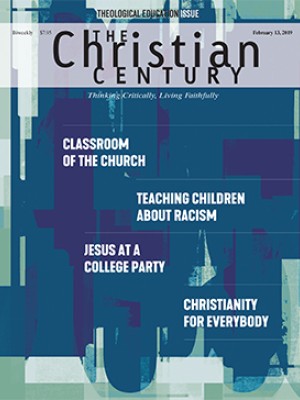U.S. groups look to Canada to resettle refugees
Canada’s private sponsorship program allows churches, community organizations, and individuals to apply for resettlement for refugees. U.S. partners can help.
(The Christian Science Monitor) When Ed Wethli, a Pittsburgh coffee company owner, learned of a Syrian family in Saudi Arabia facing deportation back to their war-torn homeland, he felt he had to help.
He brought the couple and their two elementary-school-age boys to his home in December 2014. They applied for asylum and settled into an American middle-class suburb. But their extended family remained in harm’s way in Syria.
Then came the day that the photo of Alan Kurdi, the Syrian toddler who drowned when his family tried to reach Europe, circulated in September 2015. Wethli texted 60 friends and asked them to show up at his home that night; 20 did, and they founded Ananias Mission, a faith-based nonprofit supporting refugees. But they couldn’t find an avenue for private efforts to bring refugees to the United States.
Read our latest issue or browse back issues.
“I thought, ‘We’ll talk with senators and congressmen, we can make this happen,’” Wethli said. “The situation was a mess. Now I know we were pretty naive. That’s when we found out about Canada.”
Through Canada’s private sponsorship program, which allows churches, community organizations, and individuals to apply for resettlement for refugees, Wethli’s organization eventually helped get the rest of the Syrian family members—23 in all—to safety in Ontario, sponsored by the Diocese of St. Catharines. And now the Pittsburgh-based organization is raising funds to get more refugees to Canada.
In doing so, it joins other Americans who are channeling their humanitarian spirit northward—and adjusting their views of America’s role in global crises, as the United States has rolled back its humanitarian efforts in recent years.
Wethli looks to Canada as a refuge but is troubled by where his own country stands. He had seen the United States as “the country in times of crisis in the world that has stepped up. We’re not leading anymore.”
U.S. resettlement numbers have plummeted in the last two years: only 22,491 refugees were resettled during fiscal year 2018, about a quarter of the number from two years prior.
In January 2017, President Trump signed an executive order placing limitations on refugees and visitors from many Muslim-majority countries. In its wake, Canadian prime minister Justin Trudeau posted on social media: “To those fleeing persecution, terror and war, Canadians will welcome you, regardless of your faith. Diversity is our strength. #WelcomeToCanada.”
Sponsors in Canada say American support has been vital to their volunteer efforts. Vania Davidovic, who lives in Oakville outside Toronto, has directly sponsored nine families in Canada—more than 50 individuals. She has tirelessly raised funds, appealing to coworkers, neighbors, friends, and family. Private sponsorship costs are currently estimated at $16,500 Canadian (US$12,400) for an individual or $28,700 for a family of four.
But given the needs of so many refugees, there is a limit to how much people can or are willing to give, she said.
“In our circles it wasn’t enough, what we could raise between ourselves,” she said.
She met Leslie Meral Schick, who lives in Boston, online. Like so many others, Schick was moved by the photo of Alan Kurdi. She channels most of her volunteerism to Greece, where she’s making her ninth trip in February. But when she connected with Davidovic and her circle of Canadian volunteers, she started helping closer to home, organizing fundraisers for Canadian sponsorship.
“I am hugely frustrated with the situation in the U.S.,” Schick said. “Canada is the only way that we can really help locally.”
In one case, Davidovic was short one sponsor to form what’s known as a “group of five”—the five individuals required to support a refugee application. Schick, born and raised in Turkey, contacted a high school friend whom she hadn’t talked to since 1977. Her Turkish friend, who now lives in Canada, didn’t hesitate to join the group. The sponsored family arrived in Toronto in the fall.
Wethli crosses the border to Canada often to visit the 23 members of the Syrian family now living there, backed by the Diocese of St. Catharines. But the family he supports near Pittsburgh can’t go with him, as they still await a decision from the U.S. government on their asylum application. And most of their relatives in Canada have not been able to travel to Pittsburgh, denied the visas they need to enter the United States.
Wethli helped the family members make their way to each side of the border at Niagara Falls. They stood on the platforms across the river that serves as the international boundary with binoculars and cell phones and waved to each other.
“That is how they have seen each other. They were crying,” said Wethli, tearing up himself. “I still get chills thinking about it.”
A version of this article appears in the print edition under the title “U.S. groups look to Canada to resettle refugees.”





